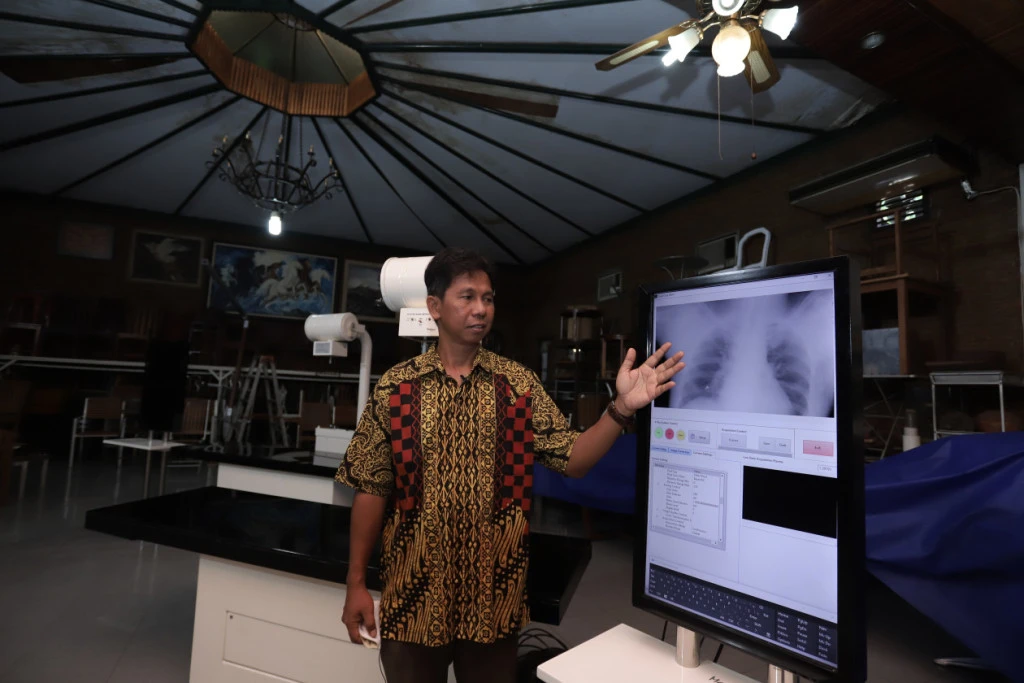UGM researchers, led by Dr. Gede Bayu Suparta from the Department of Physics, have developed DDR Madeena, a digital radiography system designed to revolutionize medical imaging in Indonesia. The technology, named Madeena (short for "Made in Indonesia"), offers a cost-effective alternative to conventional Direct Digital Radiography (DDR) systems, making advanced medical diagnostics more accessible.
The DDR Madeena system utilizes Digital Fluorescent X-Ray Radiography (RSFD) technology, which combines a fluorescent screen and digital camera. Unlike traditional X-ray systems, this innovative device eliminates the need for film processing, providing real-time results. Moreover, DDR Madeena incorporates teleradiology, enabling healthcare professionals to access diagnostic images remotely, reducing the need for on-site consultations.
One of DDR Madeena’s standout features is its affordability. Imported DDR systems are often prohibitively expensive, limiting their availability in many Indonesian hospitals. DDR Madeena addresses this gap by offering comparable functionality at a fraction of the cost. This affordability not only benefits healthcare providers but also reduces the financial burden on patients.
Safety is another critical aspect of DDR Madeena. The system minimizes radiation exposure, operating at just 1/100th of the permissible threshold set by Indonesian regulatory body BAPETEN. This ensures that patients, healthcare workers, and technicians are safeguarded during the diagnostic process.
DDR Madeena's journey began in 1989 with UGM’s initial research into digital radiography, culminating in a patented design in 2009. Collaboration with PT Madeena and CV Prestige has now enabled the mass production of this technology. The device is set to be distributed across 3,000 hospitals and clinics, as well as 9,000 community health centers throughout Indonesia.
This innovation reflects UGM’s commitment to bridging the gap between research and industry. The widespread deployment of DDR Madeena is expected to improve diagnostic capabilities nationwide, enhancing Indonesia’s healthcare infrastructure and contributing to better health outcomes.
With its potential to document health data for up to 10 years, DDR Madeena also opens new opportunities for predictive healthcare and long-term resource planning. By enabling broader access to quality diagnostics, UGM’s invention is set to advance Indonesia’s medical sector and strengthen its position as a hub for affordable healthcare technology.
Read More






 Sunday, 01-03-26
Sunday, 01-03-26







